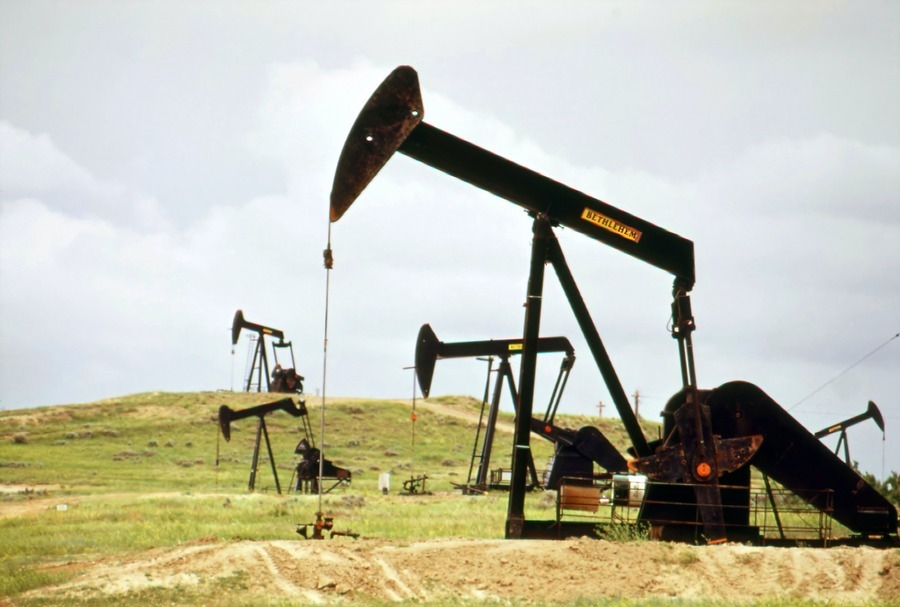
Crude Oil Exploration: Unveiling the Depths of the Black Gold
May 17, 2023
Introduction: A Journey into the Depths
Crude oil exploration, often referred to as the search for black gold, is an intriguing quest that takes us far beneath the Earth’s crust in search of one of the most valuable materials in existence. With its immense economic and geopolitical implications, crude oil exploration plays a crucial role in shaping the global energy industry. We will explore all facets of crude oil exploration in this thorough book, from techniques used to find new reserves to difficulties faced by specialists. So buckle up as we take a trip through the intriguing realm of crude oil prospecting.
The Significance of Crude Oil Exploration
Crude oil exploration holds immense significance in today’s energy landscape. As a finite resource, crude oil is the lifeblood of modern industrial societies, fueling transportation, powering electricity generation, and serving as a vital feedstock for various industries. Let’s delve deeper into the importance of crude oil exploration.
Meeting Energy Demands
Crude oil exploration is crucial for meeting the ever-increasing global energy demands. As populations grow and economies expand, the need for energy rises exponentially. Exploring and discovering new oil reserves ensures a continuous supply of this valuable resource to sustain economic growth and development.
Economic Implications
The exploration and extraction of crude oil have profound economic implications. Countries rich in oil reserves often experience significant economic benefits, including job creation, infrastructure development, and revenue generation. Additionally, crude oil exports contribute to a nation’s foreign exchange earnings, bolstering its economic stability.
Geopolitical Influence
Crude oil exploration and production exert considerable geopolitical influence. Countries with abundant oil reserves hold strategic advantages, as they possess significant bargaining power in global trade and politics. Oil-producing nations often form alliances and negotiate deals based on their energy resources, shaping international relations and power dynamics.
Methods of Crude Oil Exploration
The process of crude oil exploration involves a series of techniques aimed at locating potential oil reservoirs beneath the Earth’s surface. Let’s explore some of the primary methods employed in this captivating quest.
Seismic Surveys: Paving the Way
Seismic surveys serve as the foundation of crude oil exploration. These surveys utilize seismic waves to create detailed images of subsurface rock formations. By analyzing the reflected waves, geoscientists can identify potential oil traps and reservoirs, providing valuable insights for further exploration.
Exploratory Drilling: Peering into the Depths
Exploratory drilling involves drilling wells in areas identified as potential oil-bearing structures during seismic surveys. These wells, known as wildcat wells, are drilled to determine the presence, quality, and quantity of oil reserves. Exploratory drilling provides critical data, enabling oil companies to make informed decisions regarding further development and extraction.
Remote Sensing: Unveiling Clues from Above
Remote sensing techniques play a vital role in crude oil exploration, particularly in areas where physical access is challenging. Technologies such as satellite imagery and aerial surveys help detect surface expressions, such as oil seeps or vegetation anomalies, which may indicate the presence of subsurface oil deposits.
Gravity and Magnetic Surveys: Measuring the Invisible
Gravity and magnetic surveys measure variations in the Earth’s gravitational and magnetic fields. These surveys are valuable in identifying subsurface structures, fault lines, and sedimentary basins that may harbor crude oil reserves. By analyzing these variations, geoscientists can gain insights into the potential presence and distribution of oil-bearing formations.
Geochemical Analysis: Tracing the Signature
The geochemical analysis involves studying the chemical composition of rocks, soil, and water samples to detect hydrocarbon signatures. By analyzing the presence of certain organic compounds and isotopic ratios, geochemists can identify areas with the potential for crude oil accumulation. This method helps narrow down exploration efforts and target high-potential reservoirs.
Reservoir Characterization: Understanding the Subsurface
Reservoir characterization is a crucial step in crude oil exploration, where geoscientists analyze data from wells and core samples to understand the geological properties of potential reservoirs. This includes evaluating rock porosity, permeability, and fluid saturation, providing insights into the viability and producibility of the oil reservoir.
3D Seismic Imaging: Visualizing the Underground
Advancements in technology have enabled the use of 3D seismic imaging in crude oil exploration. This technique generates highly detailed three-dimensional images of subsurface structures, allowing geoscientists to interpret the complex geology better and identify potential reservoirs. 3D seismic imaging enhances exploration efficiency and reduces drilling risks.
Data Integration and Interpretation: Unraveling the Puzzle
The success of crude oil exploration heavily relies on the integration and interpretation of various data sources. Geoscientists analyze seismic data, well logs, geological maps, and other relevant information to build a comprehensive understanding of the subsurface. By combining and interpreting these data sets, they can make informed decisions on exploration targets and drilling locations.
Challenges in Crude Oil Exploration
Crude oil exploration is not without its challenges. Despite technological advancements, several factors pose significant obstacles to the discovery and extraction of oil reserves. Let’s explore some of the major challenges faced by the industry.
Exploration Risks
Exploration risks are inherent in crude oil exploration. The process involves substantial investments in seismic surveys, exploratory drilling, and data analysis, with no guarantee of discovering commercially viable oil reserves. The uncertainty and unpredictability of exploration results make it a high-risk endeavour for oil companies.
Complex Geology
The Earth’s subsurface is a complex and diverse environment, making it challenging to identify and characterize potential oil reservoirs accurately. Geological complexities, such as fault lines, complex structures, and stratigraphic traps, can pose significant hurdles in exploration efforts. Understanding the intricate geology requires expertise and advanced technology.
Technological Limitations
While technology has significantly improved crude oil exploration, certain limitations persist. Deepwater exploration, for example, presents technical challenges due to extreme pressures, harsh environments, and complex logistics. Developing and deploying advanced technologies to overcome these limitations requires substantial investment and research.
Environmental Concerns
Crude oil exploration is often accompanied by environmental concerns. Exploration activities can disrupt ecosystems, endanger wildlife, and contribute to pollution if not managed properly. Balancing the need for energy resources with environmental sustainability is a critical challenge that the industry faces, necessitating stringent regulations and responsible practices.
Cost and Economics
Exploration and extraction of crude oil involve significant costs. From seismic surveys to drilling operations, the expenses associated with exploration can be substantial. Fluctuations in oil prices and market conditions also impact the economic viability of exploration projects, making cost management a critical factor in decision-making.
Access and Politics
Access to potential exploration sites can be challenging due to political, legal, and territorial considerations. Oil reserves located in remote or politically unstable regions may face barriers to entry, posing logistical and security challenges for oil companies. Navigating geopolitical complexities and securing necessary permits and agreements can be a daunting task.
FAQ
Q1: What is the timeline for discovering and extracting crude oil reserves?
The timeline for discovering and extracting crude oil reserves can vary significantly. It typically involves a multi-stage process that includes seismic surveys, exploratory drilling, data analysis, and reservoir evaluation. From the initial exploration phase to commercial production, depending on how complex the job is and the quantity of the reserves, it may take several years or even decades.
Q2: How do fluctuations in oil prices impact crude oil exploration?
Fluctuations in oil prices have a direct impact on the economics of crude oil exploration. When oil prices are high, exploration activities become more economically viable, as the potential returns outweigh the costs involved. Conversely, during periods of low oil prices, exploration projects may be put on hold or scaled back due to reduced profitability. Oil companies carefully monitor market conditions and price trends to make informed decisions about exploration investments.
Q3: What are the environmental risks associated with crude oil exploration?
Crude oil exploration carries certain environmental risks. Exploration activities, such as seismic surveys and drilling, can disrupt ecosystems, harm marine life, and lead to habitat destruction. There is also a risk of oil spills during drilling and production operations, which can have severe ecological consequences. To mitigate these risks, strict regulations and environmental management practices are implemented, including the use of advanced technologies and contingency plans.
Q4: Is crude oil exploration limited to onshore locations?
No, crude oil exploration is not limited to onshore locations. In fact, offshore exploration plays a significant role in discovering and extracting crude oil reserves. Offshore drilling involves exploring oil reserves beneath the seabed, often in deepwater environments. It presents unique challenges due to technical complexities, such as extreme pressures, harsh weather conditions, and logistics. Offshore exploration requires specialized equipment, expertise, and stringent safety measures.
Q5: How does technology contribute to improving crude oil exploration?
Technology plays a crucial role in enhancing crude oil exploration. Advancements in seismic imaging techniques, such as 3D seismic surveys, enable more accurate mapping of subsurface structures and identification of potential reservoirs. Data integration and interpretation tools allow geoscientists to analyze vast amounts of information, leading to better decision-making. Additionally, technologies like remote sensing and geochemical analysis aid in targeting exploration efforts more effectively and efficiently.
Q6: What is the future of crude oil exploration?
The future of crude oil exploration is shaped by various factors, including evolving energy needs, environmental concerns, and technological advancements. As the globe migrates to cleaner, more sustainable forms of energy, there may be a shift in focus towards renewable energy exploration and development. However, crude oil for the foreseeable future, will continue to play an important part in the world’s energy mix. Exploration efforts will likely prioritize areas with high potential reserves, utilize advanced technologies, and adhere to stringent environmental standards.
Conclusion: Unveiling the Depths of Crude Oil Exploration
Crude oil exploration is a captivating journey that takes us deep into the Earth’s crust in search of the valuable black gold. It holds immense significance in meeting global energy demands, driving economic growth, and shaping geopolitical dynamics. Through various techniques like seismic surveys, exploratory drilling, and data analysis, the industry strives to uncover new reserves and overcome challenges such as exploration risks, complex geology, and environmental concerns.
Through tools for data integration and interpretation as well as enhanced seismic imaging, technology continues to play a crucial role in enhancing exploration efficiency. However, the industry also faces obstacles, including fluctuating oil prices, access to reserves, and the need to balance energy needs with environmental sustainability.
As we navigate the complexities of the global energy landscape, crude oil exploration remains a vital part of our journey towards a secure and sustainable future. By embracing technological advancements, adhering to responsible practices, and balancing economic and environmental considerations, the industry can continue to unlock the potential of crude oil reserves while mitigating its environmental impact.














